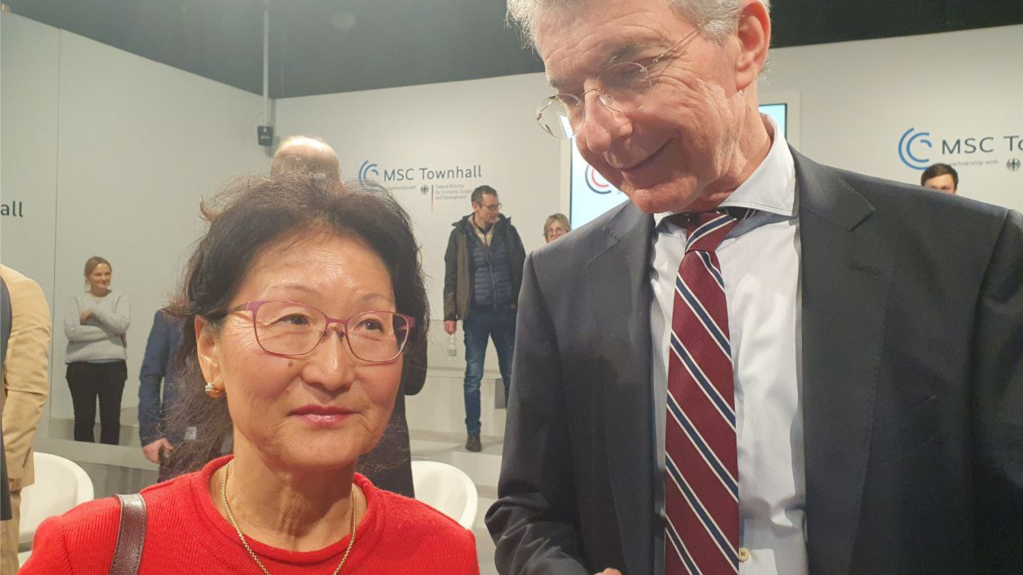Path of culture for Kalmykia independence
Archaeologist Maria Očir-Gorjaeva: "Imperial states have their own parabola, the flattening of ethnic groups cannot last indefinitely. The independence of the peoples of the Caucasus would also and especially serve the Russians, in a federal unity left only to global issues."
Moscow (AsiaNews) - Since the beginning of the invasion of Ukraine, nationalist movements in Russia's regions seeking to break away from Moscow have been greatly resuscitated, mainly by activists abroad organizing conferences and programmatic rallies.
Even the most qualified scholars and analysts are beginning to speculate on different variants of raspad, the "break-up" of the Russian Federation, especially in the event of defeat, or at any rate nonvictory, of the Putinian special operation. One of the areas most sensitive to these issues is especially the Caucasus, with its patchwork of Eurasian ethnic groups.
A very qualified personality in this field is Calmucca professor Maria Očir-Gorjaeva, a member of the Archaeological Institute of Germany, awarded the highest ranks by the Academy of Sciences of Russia, for the section devoted to Kalmykia, the region of Mongolian ethnicity on the borders of the European part of Russia.
Since 1999, having won a competition from the prestigious Alexandr von Humboldt Foundation, she has lived and taught in Berlin, regularly traveling to Kalmykia for archaeological expeditions.
In an interview with Kavkaz.Realii, Očir-Gorjaeva responds to accusations that she is "in the service of Western propaganda," working thanks to German and European funding: "This is a xenophobic rhetoric that has unfortunately always been widespread in Russia, which was revived when so many scholars in the 1990s, no longer receiving any salary from the state, began to access international competitions and programs, which in fact saved us."
It was not only about economic support, but also about enhancing the inherited skills of historical, archaeological and various kinds of science, which had reached a great level in the Soviet period.
The accusation is also about the willingness of Westerners to "transplant their own values" to Russia, but the scholar reiterates that "in the 24 years I have lived in Berlin, no one has ever transplanted anything to me; instead, I have been given the opportunity to compare and choose from the wealth of scientific, cultural and moral values... It is no accident that all those who wish to deepen their own values do not run to Iran, Afghanistan or Russia, rather they try to leave these countries at the first opportunity."
Očir-Gorjaeva reminds us, however, that even the Caucasian and Asian peoples, like the calmucchi themselves, largely share the Kremlin's propaganda theses, having "remained subjugated by imperial power and mentality for centuries; if the oirati [Tatars] had made it to the shores of the Atlantic, perhaps they would have turned into civilized Europeans, instead they stayed around those of the Volga and Caspian."
Yet the scholar believes that the independence of the Kalmyks, and other peoples, is "now ripe, it is a historical necessity," because imperial states have their own parabola, and "the flattening of ethnicities can never be infinite."
According to the archaeologist, not only ethnic minorities and federal republics, but "also all the regions of Russia" (of which there are nearly a hundred) should find their way to their own autonomy and independence. This was a project vague in Yeltsyn's time, one of the reasons that later led to the establishment of the Putinian "power vertical."
Federal unity should therefore be left to "global issues, such as environmental protection and projects for technological development, to be solved all together."
The independence of the peoples "would also and above all serve the Russians," assures Očir-Gorjaeva, many of whom live in Siberia and the Far East under conditions very different from those in European Russia itself.
Thus, it would not be a "civil war," as many fear, but a complete restructuring of a crumbling empire, which should be transformed into a "large community of brotherly peoples, each with its own history and identity, its own values and common values," open to communication with the whole world.
13/12/2021 09:06
11/08/2021 00:59
08/07/2024 17:38







.png)










